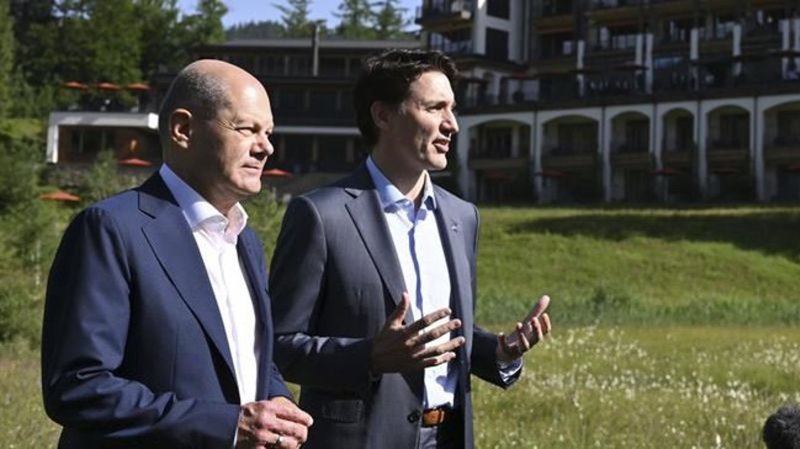
Ukraine calls on Canada to shelve turbine exemption as German chancellor to visit
OTTAWA — As German Chancellor Olaf Scholz is set to arrive in Canada on Sunday, Prime Minister Justin Trudeau is facing renewed calls from Ukraine to cancel a permit allowing turbines repaired in Montreal to be sent back to a Russian energy giant.
Scholz, who took over from Angela Merkel in December last year, is expected to land in Montreal on Sunday evening for a three-day visit that also includes scheduled stops in Toronto and Stephenville, N.L.
He will be accompanied by Vice-Chancellor Robert Habeck, who is in charge of the country’s energy file.
A statement from the Prime Minister’s Office said the visit will advance shared priorities between Canada and Germany “including our unwavering support for Ukraine, protecting peace and security in Europe and around the world, and addressing the broader global impacts of Russia’s illegal and unjustifiable invasion.”

